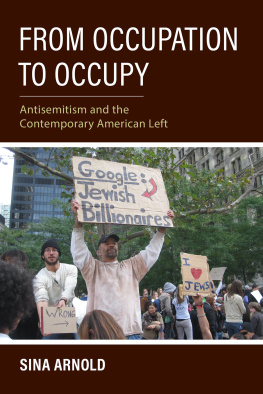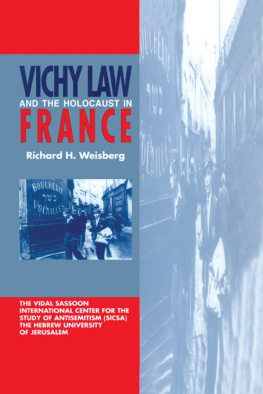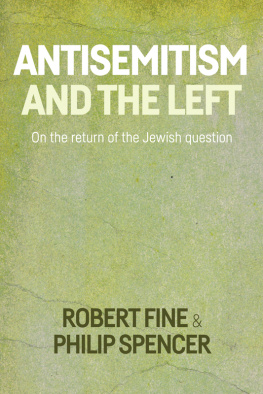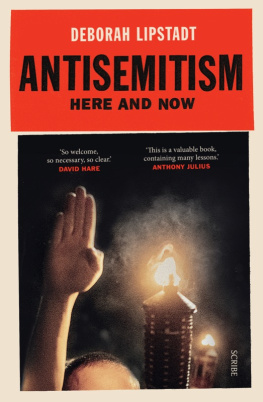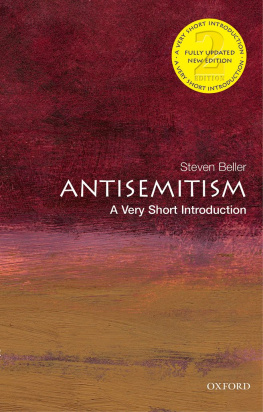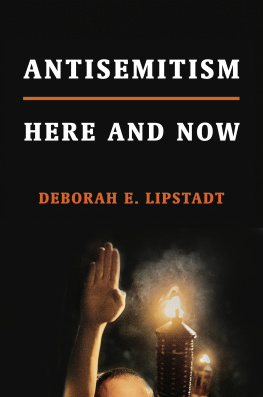THE FUTURE OF THE GERMAN-JEWISH PAST
THE FUTURE OF THE GERMAN-JEWISH PAST
Memory and the Question of Antisemitism
Edited by
GIDEON REUVENI AND
DIANA FRANKLIN
PURDUE UNIVERSITY PRESS | WEST LAFAYETTE, INDIANA
Copyright 2021 by Purdue University. All rights reserved.
Printed in the United States of America.
Cataloging-in-Publication data is on file at the Library of Congress.
Paperback ISBN: 978-1-55753-711-9
ePub ISBN: 978-1-55753-729-4
ePDF ISBN: 978-1-55753-796-6
Cover artwork: Painting by Arnold Daghani from What a Nice World, vol. 1, 185.
The work is held in the University of Sussex Special Collections at The Keep, Arnold Daghani Collection, SxMs113/2/90. The authors are grateful to the Centre for German-Jewish Studies at the University of Sussex for granting us permission to use the image for the cover.
This book is dedicated to the memory of Professor Edward Timms OBEscholar, mentor, friend, and founder of the Centre for German-Jewish Studies at the University of Sussex.
CONTENTS
Gideon Reuveni
Alan Posener
Sheer Ganor
Joachim Schlr
Michal Friedlander
Nicola Glucksmann
Michael Brenner
Mathias Berek
Galili Shahar
Bjrn Siegel
Sandra Anusiewicz-Baer
Klaus Hdl
Lisa Silverman
Liliane Weissberg
Dani Kranz
Hannah C. Tzuberi
Moshe Zimmermann
Anthony D. Kauders
Frank Mecklenburg
Guy Miron
Kerry Wallach
ACKNOWLEDGMENTS
T HIS BOOK WAS conceived as part of the anniversary celebrations for the Centre for German-Jewish Studies at the University of Sussex. The center was initially set up in 1994, but officially inaugurated by Lord Richard Attenborough, who was Sussex Universitys chancellor, in 2000. The purpose of the center is to study the contribution of German-Jewish communities to modern life and to research the experiences and achievements of German-Jewish refugees and their families. Financial support has come from a range of educational trusts, including Steven Spielbergs Righteous Persons Foundation and the Anne Frank-Fonds, as well as individual donors, most of whom were first- or second-generation German-Jewish refugees. The founding director of the center was Professor Edward Timms, a preeminent authority on the Austrian satirist Karl Kraus and a defining scholar of Austrian and German-Jewish studies. For Timms the mission of the center was not only historical, but also contemporary and critical. In his autobiography, Taking up the Torch (2010), he noted that racial prejudice constitutes a continuing political danger and that German-Jewish studies may serve as a model for understanding the challenges of multiethnic societies in present-day society. This insight regarding the relevance and contemporary significance of the German-Jewish experience continues to inspire the work of the center and to a large extent comprises the common thread connecting the twenty contributions in this volume. Edward Timms died at the age of eighty-one on November 21, 2018. This book is dedicated to his memory.
Several people helped us to bring this volume to fruition. We would like to thank the Centre for German-Jewish Studies London-based Advisory Board for their advice and encouragement with this and all our other current projects. Nicola Glucksmann, Lilian Levy, and Yvonne Crampin have assisted us in preparing the manuscript for publication. The two anonymous reviewers of the volume made some excellent suggestions, which helped us to shape our ideas about the book. At Purdue University Press we found a supportive team that believed in this project from the outset. We would like to extend our sincere gratitude to each author whose work has been included in the ensuing pages. Their insights have enriched the field of German-Jewish studies and we are most grateful to them for helping us to initiate this discussion on the future of the German-Jewish past.
THE FUTURE OF THE GERMAN-JEWISH PAST STARTS HERE
GIDEON REUVENI
P ONDERING THE FUTURE of the German-Jewish past is not a new concept. When struggling for their rights, many German Jews reflected on the past with growing dismay, envisioning a bright future for the period after emancipation. Before the First World War it was mainly Zionist thinkers who dominated the debates about the future of the Jews.1 Swayed by the conviction that there were no prospects for Jews in (mainly Eastern) Europe, they campaigned for a so-called national rebirth of the Jewish people in what was conceived as the place of Jewish originthe Land of Israel. After the upheavals of the First World War and during the times of uncertainty and rapid change that ensued, the need to discuss the future prospect of German Jewry seemed even more pressing. Between the end of the Great War and the rise of National Socialism in 1933, expectations of German Jews oscillated between, on the one hand, hopes for renewal and on the other hand, gloomy prophecies of disintegration. What is certain is that despite the upheavals and conflicting visions for the future, most German-speaking Jews could not imagine Germany without Jews.2 This applies all the more to the so-called Jewish prophets of the past, the German-Jewish historians.3 Thus, for example, in the first issue of the revived Zeitschrift fr die Geschichte der Juden in Deutschland in 1929, the historian Raphael Strauss (18871947) called for a review of German-Jewish historiography by acknowledging all aspects of Jewish history in Germany.4 His plan for a more comprehensive German-Jewish historiography was based on the observation that scholarship in this field was divided between two main groups, each driven by different interests and methods of research. According to Strauss, the first group comprised Jewish scholars who were predominantly interested in intellectual study or Geistesgeschichte, while the other group comprised mainly non-Jewish scholars dealing with social and economic aspects of Jewish life from the past. Strausss concept of a comprehensive German-Jewish historiography was thus designed to bring together different groups of scholarsJews and non-Jews alikecombining their diverse methods and research interests in order to create what Leopold Zunz (17941886) had referred to as an all-encompassing science of Judaism.5 This vision of interdisciplinary or connecting Jewish studies in Germany corresponded to the Jewish demand for recognition and the long-standing desire to belong to the majority non-Jewish society.
After the Holocaust, in the first volume of the newly founded Leo Baeck Institute Year Book (LBIY), Bernard Dov Weinryb (19051982) wrote his own vision of the prospects for German-Jewish history, confirming many of Strausss contentions.6 While Weinryb accepted Strausss initial observation regarding the division of research between two groups of researchers, he attacked the narrow approach of both Jewish and non-Jewish scholars that focused predominantly on the question of the Jews place within their German host society. For Weinryb, the general tendency of German-Jewish historiography to overstress Jewish/non-Jewish relations had come to a close with the Second World War. Today, he wrote, the return to internal Jewish history and thus to clear figures and non-illusionistic pictures seems to be a logical result of the new situation.7 Based on this observation, Weinryb moved away from Strausss notion of a comprehensive history and the ideal of connecting histories. Instead he proposed that German-Jewish history should deal with Jewish life in Germany within the confines of its own space or what he called social field. Shifting the center of gravity of German-Jewish history back to the Jewish sphere was supposed to undermine the overemphasis on Jewish/non-Jewish relations and to separate research once and for all from the so-called contribution approach to German-Jewish relations, and for that matter from the symbiosis paradigm as well. Moreover, as opposed to the so-called


